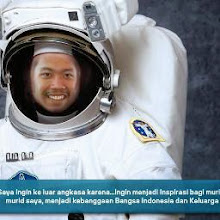Some theorists think that dark energy and cosmic acceleration are a failure of general relativity on very large scales, larger than superclusters. It is a tremendous extrapolation to think that our law of gravity, which works so well in the solar system,
should work without correction on the scale of the universe.
Most
attempts at modifying general relativity, however, have turned out to be
either equivalent to theories of quintessence, or inconsistent with observations. It is of interest to note that if the equation for gravity were to approach r instead of r2 at large, intergalactic distances, then the acceleration of the expansion of the universe becomes a mathematical artifact, negating the need for the existence of Dark Energy.
Alternative ideas for dark energy have come from string theory, brane cosmology and the holographic principle,
but have not yet proved as compelling as quintessence and the
cosmological constant. On string theory, an article in the journal Nature described:
String theories, popular with many particle physicists, make it possible, even desirable, to think that the observable universe is just one of 10500 universes in a grander multiverse, says [Leonard Susskind, a cosmologist at Stanford University in California]. The vacuum energy will have different values in different universes, and in many or most it might indeed be vast. But it must be small in ours because it is only in such a universe that observers such as ourselves can evolve.
Paul Steinhardt
in the same article criticizes string theory's explanation of dark
energy stating "...Anthropics and randomness don't explain anything... I
am disappointed with what most theorists are willing to accept".
In
a rather radical departure, an article in the open access journal,
Entropy, by Professor Paul Gough, put forward the suggestion that
information energy must make a significant contribution to dark energy
and that this can be shown by referencing the equation of the state of
information in the universe.
Yet
another, "radically conservative" class of proposals aims to explain
the observational data by a more refined use of established theories
rather than through the introduction of dark energy, focusing, for
example, on the gravitational effects of density inhomogeneities, or on consequences of electroweak symmetry breaking in the early universe.
Kunjungi Juga:
Wikipedia
























No comments:
Post a Comment